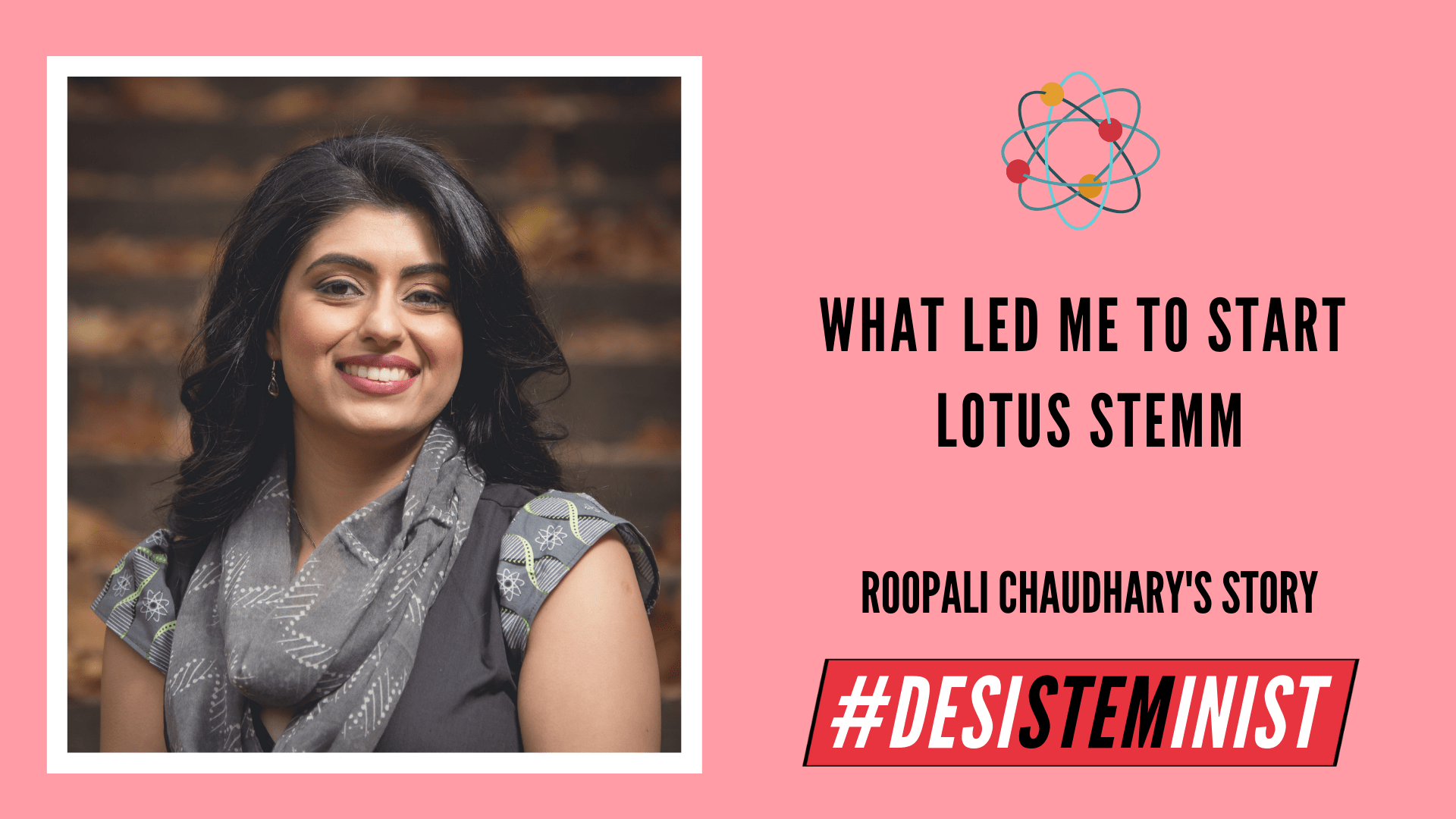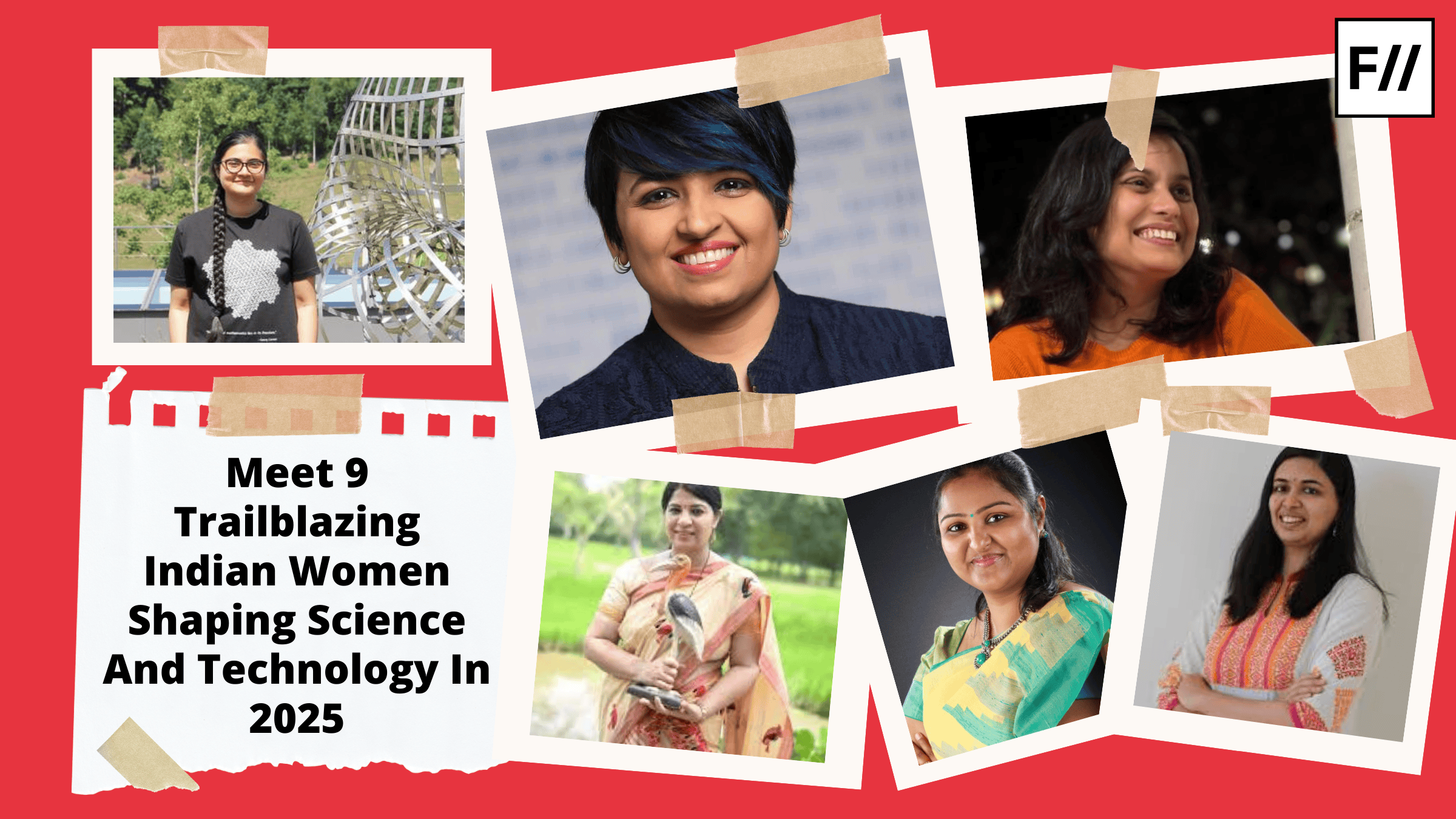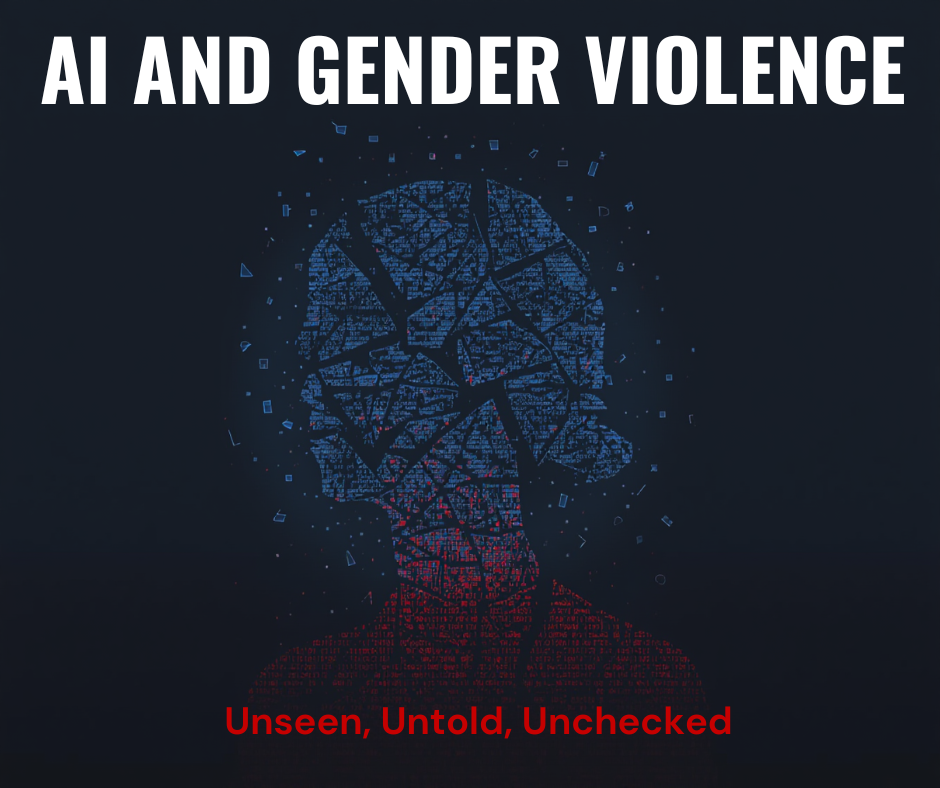Editor’s note: #DesiSTEMinist is a campaign to celebrate women in the field of STEM and highlight their contributions.
Posted by Roopali Chaudhary
From a very young age, I knew I loved science and wanted to pursue my studies in the field somehow. I knew I did not like taking orders, which would have made me a bad nurse. So I aimed to go to medical school with the goal of becoming a medical doctor. By the age of 5, I used to go around calling
Up until I started my undergraduate work, I had never seen or even learnt about a female scientist. What I knew about scientists was from conventional media: they are men, they have big messy hair, they are absent-minded, and they’re anti-social – basically everything that I had observed from Dexter’s Laboratory and none of which I was. But during my undergraduate degree, I realised how much I loved doing science, asking questions, and being curious.
It is difficult to become something you cannot see. Growing up outside of India, I didn’t see many South Asian women as professors or scientists.
The only issue was that I had no idea how someone becomes a scientist, or even what a scientist does day-to-day. It is difficult to become something you cannot see. Growing up outside of India, I didn’t see many South Asian women as professors or scientists. I had no idea if it was a viable option for an Indian girl, or how my proposal to enter graduate school rather than
Also read: A. Mani Lays Down How To Fight Sexism And Queerphobia In STEM | #DesiSTEMinist
I can now proudly say that I have an MSc in genetics, a PhD in Cellular Biology and have done Post-doctoral work in Immunology. I did eventually attain the prefix of Dr., though not in the medical profession, the conventional idea of a doctor. My time in academia, however, has not been easy – microaggressions and imposter syndrome
“You’re still in school?”
“Do you really want to have more degrees than a man?”
“You don’t want to sound smarter than a man, do you?”
“Will you have time for your family?”
“Aren’t you worried about being too intimidating?”
These questions stuck with me while I continued my education. This led to
I realised and recognised that a part of the reason for this thinking was because,
There are 3 objectives.
(1) to do outreach within South Asian communities to promote STEMM amongst young girls
(2) to give a platform for networking and leadership by giving a visibility to South Asian women in the fields, and providing free workshops for them heighten their career trajectories, and
(3) do research within the South Asian community to understand the determinants of how and why a South Asian woman/girl chooses her career.
With Lotus STEMM, my hope is that young women will have an avenue to be exposed to various careers in STEMM, be it through stories of trailblazing South Asian women, or mentorship of a young graduate student to help guide her in navigating her parents, society and community pressures. These are aspects I wish I had when I was a 5-year-old
Roopali Chaudhary, PhD., is the founder & CEO of the Canadian registered NFP, Lotus STEMM, and the owner of a science-themed custom cake business called (C6H12O6)^3 SugarKube. Follow her on Instagram, Twitter and email her @lotusstemm@gmail.com.
About the author(s)
Guest Writers are writers who occasionally write on FII.




